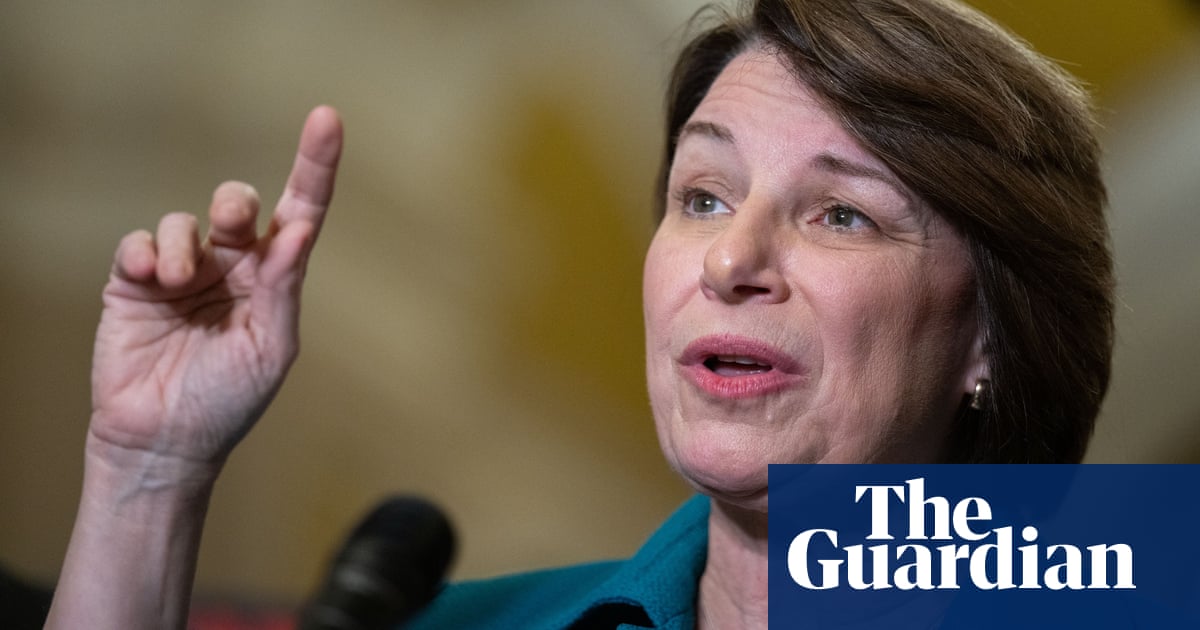Minnesota senatorAmy Klobucharwarned on Sunday that the US is “getting closer and closer to a constitutional crisis”, but the courts, growing Republican disquiet atTrump administrationpolicies, and public protest were holding it off.
“I believe as long as these courts hold, and the constituents hold, and the congress starts standing up, our democracy will hold,” Klobuchar told CNN’s State of the Union, adding “but Donald Trump is trying to pull us down into the sewer of a crisis.”
Klobuchar said theUS supreme courtshould hold Trump administration officials in contempt if they continue to ignore a court order to facilitate the return of Kilmar Ábrego García from El Salvador, the Maryland resident the government admitted in court it had deported by mistake.
Klobuchar said the court could appoint a special prosecutor, independent of Trump’s Department of Justice, to uphold the rule of law and charge any officials who are responsible for Ábrego García’s deportation, or have refused to facilitate his return.
The senator’s comments came hours after supreme court released justiceSamuel Alito’s dissenting opinion on the court’s decision to block the Trump administration from deporting more Venezuelans held in north Texas’s Bluebonnet detention center .
Inhis dissent, Alito criticized the decision of the seven-member majority, saying the court had acted “literally in the middle of the night” and without sufficient explanation. The “unprecedented” relief was “hastily and prematurely granted”, Alito added.
Alito, whose dissent was joined by fellow conservative justice Clarence Thomas, said there was “dubious factual support” for granting the request in an emergency appeal from the American Civil Liberties Union to block deportations of accused gang members that the administration contends are legal under the Alien Enemies Act of 1798.
The majority did not provide a detailed explanation for the order released early on Saturday, only that the administration should not to remove Venezuelans held in the “until further order of this court”.
The court has said previously that deportations under the 1798 law can only proceed if those scheduled to be removed are offered a chance to argue their case in court and were given “a reasonable time” to contest their pending removals.
Sign up toHeadlines US
Get the most important US headlines and highlights emailed direct to you every morning
after newsletter promotion
Alito further wrote that both “the Executive and the Judiciary have an obligation to follow the law”, but it was not clear whether the supreme court had jurisdiction until legal avenues had been pursued through lower courts. He also objected to the fact that and the justices had not had the chance to hear the government’s side.“The only papers before this Court were those submitted by the applicants,” Alito wrote. “The Court had not ordered or received a response by the Government regarding either the applicants’ factual allegations or any of the legal issues presented by the application. And the Court did not have the benefit of a Government response filed in any of the lower courts either,” Alito said.
In his dissent, Alito said the applicants had not shown they were in “imminent danger of removal”.“In sum, literally in the middle of the night, the Court issued unprecedented and legally questionable relief without giving the lower courts a chance to rule, without hearing from the opposing party, within eight hours of receiving the application, with dubious factual support for its order, and without providing any explanation for its order,” Alito wrote.
“I refused to join the Court’s order because we had no good reason to think that, under the circumstances, issuing an order at midnight was necessary or appropriate”, Alito added.
